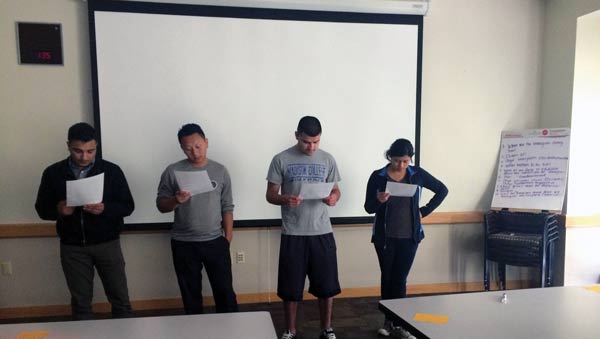Jesus Nebot challenges common perspectives on immigration
October 4, 2014
“What do you think of when I say the term illegal aliens?” asks a man to a group of students.
Someone in the front yells out, “categorizing.” A woman in the back says, “not following the law.” Someone from the middle says, “outer space.”
Jesus Nebot, who asked the question, nods his head and pauses before examining the answers from the crowd, emphasizing that in these answers lie the problem with immigration reform.
“Have you ever driven over the speed limit?” Nebot continues. “Have either of you drank before you were 21? I’m sure the majority of you have, which makes you all illegal aliens at some point in your life.”
Fully and quickly, Nebot challenges stigmas, myths, and questions from audience, with answers rooted in the humanistic perspective — a view intended to be productive, efficient, and humbling.
Audience members are instructed to read aloud the five solutions suggested on his hand out. Immigration can be a tough issue to talk about. Does anyone really have a solution? Nebot suggests changing the vocabulary of immigration, replacing words like “aliens,” “illegal,” and “undocumented,” with the term “economic refugees.” This aims to replace an individualistic perspective with a group-oriented one, which Nebot believes can help the country deal with immigration.
As the workshop came to a close, Nebot offers final thoughts. “We are humans,” he says. “Beyond labels, nationalities, political parties, and gender. At the end of the day, we are just people.”
FIVE SOLUTIONS
1.Raise living standards in Mexico, Central America and the Caribbean.
2.Reopen the debate on the future of the Latin American countryside.
3.Reduce the economic insecurities that are fueling the anti-immigration backlash.
4.Cancel impoverished countries’ crippling debts.
5.Devise a set of policies that bring immigrations out of the shadows.
(from “Common sense immigration policies for
a globalized world,” Chacón, Shannon, & Anderson)










